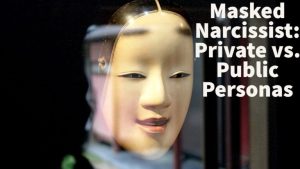1. Incident of Addressing Misbehavior
- The speaker confronted two unrelated individuals about their disrespectful behavior and suggested they change to avoid being perceived as ill-mannered. Both individuals reacted identically by apologizing initially but then became offensive and attacked the speaker, accusing them of lacking compassion and empathy [00:00].
2. Common Reaction Pattern
- Both individuals used similar excuses such as losing eyeglasses or being sick, implying their misbehavior was justifiable and the speaker’s criticism was unfair. They positioned the speaker as the one lacking compassion for daring to point out their faults [00:20].
3. Aloplastic Defenses Explained
- The speaker introduced the concept of aloplastic defenses, where individuals attribute their misconduct or failures to others rather than accepting personal responsibility. This defense mechanism involves blaming external factors or people to protect oneself from accountability [00:40].
4. Characteristics of Aloplastic Defenses
- People using aloplastic defenses claim others misbehave, lack empathy, or are ignorant, expecting others to interpret and excuse their behavior without question. They reject the idea of being at fault and instead accuse others of misbehavior simply for pointing out their faults [01:10].
5. Relation to Entitlement and Magical Thinking
- Aloplastic defenses are closely linked to a sense of entitlement, where a person believes they deserve special treatment and immunity from consequences. This is combined with magical thinking that others should read their minds and understand their reasons for misbehavior without explicit communication [01:40].
6. Self-Enhancement and Narcissistic Rage
- Through aloplastic defenses, individuals maintain a self-image of being perfect and moral, placing blame on others for misunderstandings or conflicts. The speaker described the reactions of the two individuals as narcissistic rage, reacting aggressively to being challenged about their inappropriate behavior [02:10].
7. Lack of Objectivity in Criticism
- The attacking individuals did not objectively analyze the speaker or the situation; their reaction was defensive and disproportionate to the initial criticism, focusing on personal attacks instead of addressing the issue of incivility and disrespect [02:40].
[⚠️ Suspicious Content] 1. Incident of Addressing Misbehavior
Empaths
The speaker confronted two unrelated individuals about their disrespectful behavior and suggested they change to avoid being perceived as ill-mannered.
Both individuals reacted identically by apologizing initially but then became offensive and attacked the speaker, accusing them of lacking compassion and empathy [00:00].
2. Common Reaction Pattern
Both individuals used similar excuses such as losing eyeglasses or being sick, implying their misbehavior was justifiable and the speaker’s criticism was unfair. They positioned the speaker as the one lacking compassion for daring to point out their faults [00:20].
3. Aloplastic Defenses Explained
The speaker introduced the concept of aloplastic defenses, where individuals attribute their misconduct or failures to others rather than accepting personal responsibility. This defense mechanism involves blaming external factors or people to protect oneself from accountability [00:40].
4. Characteristics of Aloplastic Defenses
People using aloplastic defenses claim others misbehave, lack empathy, or are ignorant, expecting others to interpret and excuse their behavior without question. They reject the idea of being at fault and instead accuse others of misbehavior simply for pointing out their faults [01:10].
5. Relation to Entitlement and Magical Thinking
Aloplastic defenses are closely linked to a sense of entitlement, where a person believes they deserve special treatment and immunity from consequences. This is combined with magical thinking that others should read their minds and understand their reasons for misbehavior without explicit communication [01:40].
6. Self-Enhancement and Narcissistic Rage
Through aloplastic defenses, individuals maintain a self-image of being perfect and moral, placing blame on others for misunderstandings or conflicts. The speaker described the reactions of the two individuals as narcissistic rage, reacting aggressively to being challenged about their inappropriate behavior [02:10].
7. Lack of Objectivity in Criticism
The attacking individuals did not objectively analyze the speaker or the situation; their reaction was defensive and disproportionate to the initial criticism, focusing on personal attacks instead of addressing the issue of incivility and disrespect [02:40].







